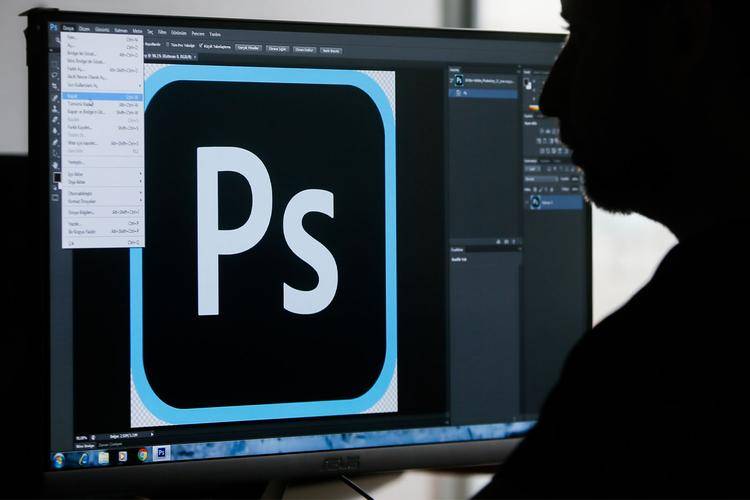Want to stand out from the crowd, and beat your freelance competition? Our tips will help you get there. The creative freelancer community is, in general, wonderfully helpful and supportive. But the fact remains that, when a client is looking for a freelancer, we do have to compete with each other for their attention. And if you're unsuccessful in that battle too many times, it can wear you down. As it can when you see peers landing amazing projects and fantastic clients that you didn't even know about.
It's not like you want to screw anyone over or deprive a fellow freelancer of work. But ultimately, you have one life and career and want to make the most of it. So how do you stand out from the crowd and give yourself the best chance of landing fresh and exciting opportunities? In this article, we'll offer some tips.
Read Also: Travails of the Traveling Hats: From the Congo to The Met
1. Be unique
When you see other freelancers stealing the rug from under you, it's natural to want to analyze their success and copy what they do. And if you pick up a few ideas or tricks that help you sell your services better, that's all to the good. But going further and trying to copy everything they do, such as their signature visual style, is a bad idea.
That approach won't work because it's not you. Instead, you need your own USP (unique selling point), your own 'special sauce', your own story… and lean into it like your life depends on it. In other words, be completely, authentically you.
Once you discover your superpower – what differentiates you from other freelancers – it'll become almost like an anchor, determining every other part of your branding process. For example, your social media bios will become easy to write because you'll know who you are, what you're good at, and what you provide that others can't. And when it comes to hunting for clients, you'll instinctively know the answer to the question: "Why should they hire me over someone else?"
Figuring this stuff out, of course, can't be done in a day. Sometimes it can take months or even years to build your skills and find your niche. In fact, rushing the process can be counter-productive, leading you down the wrong path and into a dead end. But at the same time, it should be your overall direction of travel: moving away from being a cookie-cutter freelancer and towards finding your USP.
2. Be reliable
If you haven't yet found your USP as a creative freelancer, there are still ways to stand out from the competition. And the most effective is, quite simply, to be reliable.
Back in the '90s, a friend of mine worked in music PR. And she told me that working with indie bands was often a nightmare. Typically, they'd complain about not getting mentioned in the press or played on the radio. And yet whenever she organized an interview, they'd turn up late, half-dressed and half-asleep. Pop bands, in comparison, were always up at the crack of dawn, happy to meet a dozen people before lunch, smiling and immaculately dressed.
Musically, she personally liked the indie stuff more. But she preferred to work with pop groups for obvious reasons. And the same goes for your freelance clients. It doesn't matter how much they like your creative work: at the end of the day, they're busy people with busy lives. And their overwhelming priority is to get home to their partners and kids with minimal fuss.
Unfortunately, some of the most talented people in design and illustration don't always meet deadlines, communicate well, or even attend Zoom meetings on time. But you can use that to your advantage. Get a reputation for being 100% reliable, and you can win work purely on that basis alone. This requires organization and commitment, but ultimately, it's very simple to do.
3. Be consistent
Reliability isn't just about punctuality and meeting deadlines. It also means being consistent in the creative work you produce. Above all, that means reaching a consistent level of quality.
Consistent doesn't necessarily mean award-winning, though. And not understanding this difference is why so many creative freelancers miss deadlines. It's not because they've not created anything at all; it's because they hold it back, feeling that with "just a couple more days", they can make it better.
That's admirable in one sense, but excessive perfectionism doesn't help your client meet their schedule. So striking the right balance between quality and timeliness really is the key here. Saying, "This is going to be late, but the final result will be worth the wait, I promise", might sound good in your head, but take it from us: it will not endear you to your client in the long term.
Get a reputation for being 100% reliable, and you can win work purely on that basis alone. This requires organization and commitment, but ultimately, it's very simple to do.
4. Be easy to find
Are you struggling to find new clients? Well, maybe you're putting too much effort into contacting others and not enough into helping others find you.
At Creative Boom, we're constantly shocked by how difficult it is to find information on certain creatives. And while we, as trained journalists, go the extra mile to do our research, it's unlikely any prospective client will make the same effort.
While you shouldn't spend your life on social media, it doesn't take much time to set up an account on LinkedIn, Twitter, Instagram or whichever platform you think suits your discipline the best. And you don't need to spend a lot of time writing marketing speak drivel; the less of that, the better.
Instead, just make sure the following things are clear: your name, what you do, where you're based, the unique thing you offer, your contact details – including an email address – and where people can check out your best work online. Do that clearly and concisely, and you'll be much easier to contact than many creative freelancers working today.
5. Protect your personal brand
Whatever you do on social media, consider your brand at all times. A potential client considering hiring you might look at your tweets first, and negativity won't do your reputation any good.
So don't, for example, use Twitter as a platform to criticize other designers or rant about politics. If you're passionate about politics, join an actual political party or similar organization. You'll find it much more rewarding and easier to effect change in the real world and outside the echo chambers.
Instead, use social media to be a beacon of positivity, supporting others, and using it for what it was originally for: to tell people what you're doing and working on.
6. Be honest
If there's a theme that runs through everything we've mentioned so far, it's this. Think of a client less like a cash machine on legs and more like a living, breathing human being, and you'll be on the right road.
Here's another example. One of the things people value most highly is honesty. And yet, as freelancers, we're not always as honest as we'd be in everyday life.
We might exaggerate our skills or experience, hoping to hoodwink a client into taking us on… only to repent later when we find ourselves out of our depth. To win a dream contract, we might overpromise what we're able to offer rather than setting reasonable expectations. And when we make a mistake, we might desperately try to cover it up, rather than being open about our error and offering a practical solution to fixing it.
This temptation towards dishonesty is magnified in today's digitised world, where we may never have to meet our clients face-to-face, so we feel less guilty about it. But ultimately, what keeps us at work is our reputation. And so overall, dishonesty is a very bad idea in the long run.
Use social media to be a beacon of positivity, supporting others, and using it for what it was originally for: to tell people what you're working on.
7. Be respected
While you should always seek to please your clients, there comes a point at which you roll over too much. And that won't just make your life tough; it will actually hinder your efforts to beat the competition. Because basically, nobody respects a pushover.
In that light, there's a balance to be struck between meeting clients' needs and pushing back against unreasonable requests. So, for example, if you've clearly laid out a project's scope, stick to this, and don't get talked into endless "small favours" on top. Because while conflict isn't usually fun, this will increase their respect for you and improve your standing over the long term.
8. Be a lifelong student
Keeping ahead of the competition isn't something that's "one and done"; it's something you constantly have to work at throughout your freelance career. And staying ahead of the game means you always need to keep learning.
That might involve learning new software and other technologies. It might mean diversifying your skillset by expanding into new disciplines. Or it may mean diving deeper into your current discipline, such as studying it at a post-graduate level or getting personal instruction from a leading expert.
Ultimately, whatever direction you take will be personal to you. But the good news is that making an informed choice to continue learning as an adult will be a hundred times more rewarding than it was at school. So take advantage, and have fun with it!
9. Be proud of yourself
Are you stressed out, feeling the competition is doing much better than you? Then you probably need to reframe your perspective. After all, people only share the good stuff on social media, not their failures, so you're certainly getting a skewed picture there.
While running Creative Boom, we've seen design studios grow and fail, and freelancers return to full-time jobs. And there's no shame in that, by the way: we're all on our paths and journeys. So give yourself a break and celebrate where you're at right now. Doing that will instantly change your mood and shine through everything you do.
10. Be friendly
Finally, while fellow creatives may occasionally be your competition, that's not the whole picture. In truth, we only have so much capacity as freelancers and can't always take on every project we're offered. So make friends with the competition, because they might be able to pass work your way when things are busy. And, of course, you can do the same, too!




